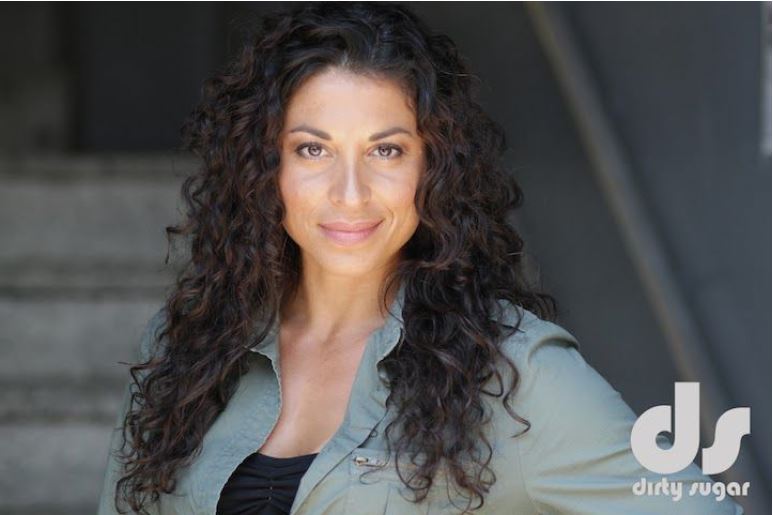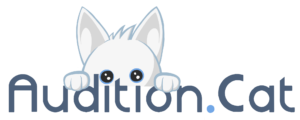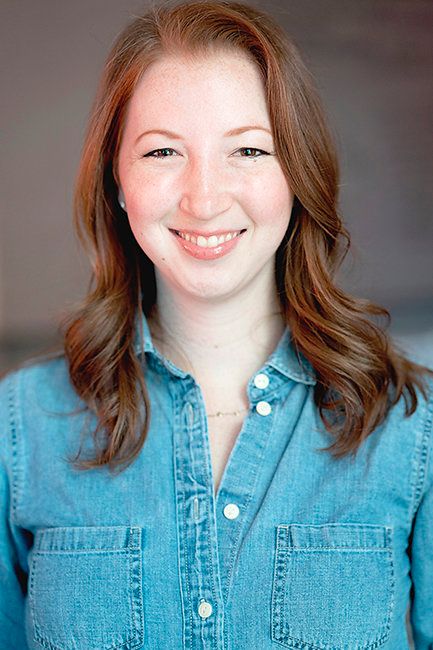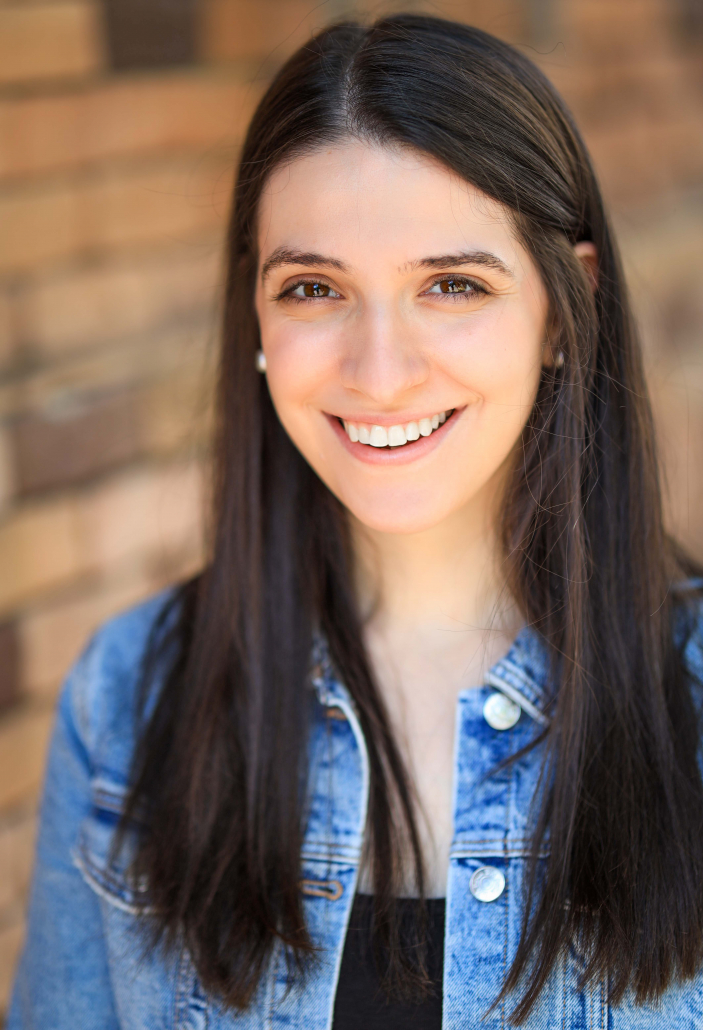Thank You, 10 is an interview series brought to you by Audition Cat, an upcoming app with career management tools for the professional auditioning performer. Each article interviews an industry professional with a different experience and opinion about what the future of auditioning looks like. Through these conversations, we hope an image will appear about what’s next for the industry, and what it aspires to be. Have someone you’d like to be considered for an interview? Reach out to us Facebook, Twitter, or Instagram.
CELESTE DEN
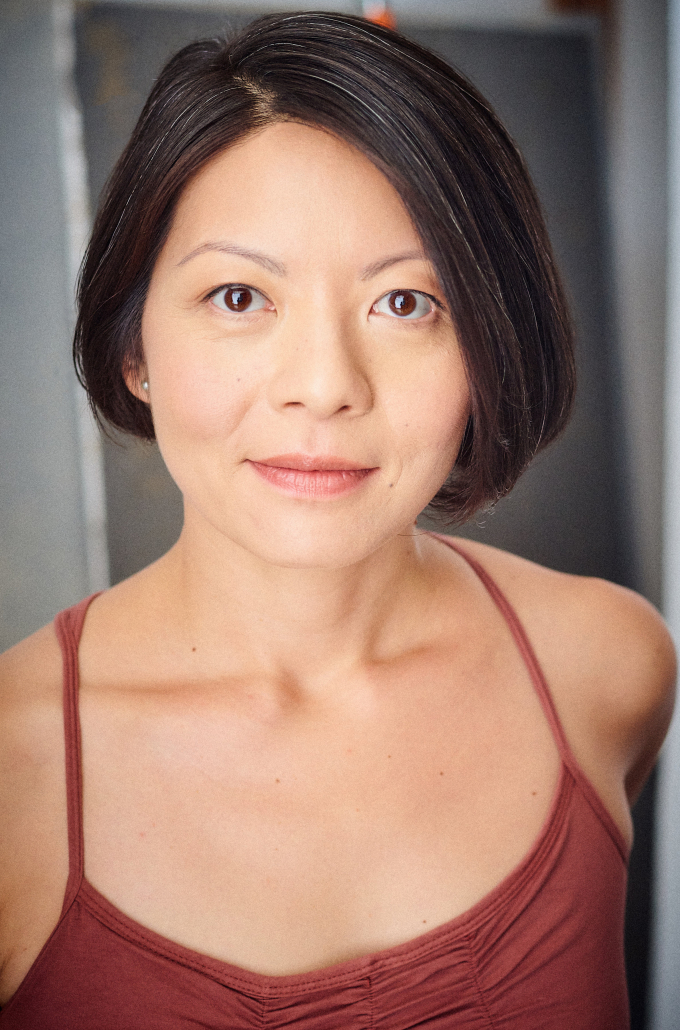
Pronouns: She/Hers
Occupation: Actor/Producer
Links to Celeste’s Work:
WEBSITE
REEL
IMDB
Credits:
David Henry Hwang’s M. Butterfly at the Cort Theater on Broadway, directed by Julie Taymor
World Premiere of Jung Chang’s Wild Swans at American Repertory Theatre and Young Vic in London, directed by Sacha Wares
World Premiere of Frances Ya-Chu Cowhig’s The King of Hell’s Palace at Hampstead Theatre in London, directed by Michael Boyd
Getting To Know You
Who are you? What’s your artistic background / what started your journey into the arts?
My name is Celeste Den, I’m a performer and occasional dabbler in producing. My artistic background is Theatre. What started me in performance was a one act play at the end of my senior year in high school. I still remember the feeling of letting go in that audition – the rediscovery of a childlike sense of play. The opening night of the one act was my 18th birthday, and it went perfectly. I remember when the lights blacked out, and everybody started applauding, I looked up in the dark and thought “Well, this is fucking IT!” And when I went to college a couple months later, I was like “Okay…Theatre!” but having never taken a Theatre class I didn’t know anything. I didn’t know what upstage was, what downstage was, I didn’t know what scene work was, I didn’t know anything. I was just like “I’m a Theatre major now. This is what I’m gonna do.”
When did you set out on your current career path?
Pretty much as soon as Theatre was in my consciousness – feeling like this is what I want to do for the rest of my life. From day one at my undergraduate, I got involved in every aspect of Theatre making, not just the acting bit. I took classes in set construction, lighting, costumes, props – you name it – and did production hours for all of them. I wanted to learn everything. I assistant stage managed and was able to observe the rehearsal process that way before I was ever cast in a mainstage show. I also got super involved with the student producing organization – acting in them, yes, but also producing them and producing events for the organization.
I was also lucky that there was a regional theater by my undergraduate school, a small LORT D theater. I went to see shows there. I started to meet the people there. I did a dramaturgy internship at that regional theater which evolved into assisting the Artistic Director as well as a few weeks of company managing. It gave me a lot of insight into what a life in professional Theatre might look like.
What is your “mission statement” as an arts professional? What drives you to continue in this industry?
Those are questions I come back to regularly, and the answers continue to evolve. I don’t know that I’ve ever had a particular “mission statement” other than “I want to be an actor.” But then I became an actor, luckily a working one, and was like “and now what?” I started because I loved it. It gave me a sense of belonging and a sense of being able to contribute, regardless of socioeconomic background or race. It was a way for me to examine myself – the way I relate to myself, to other people and to the world. All fairly self serving reasons to be honest. At some point though, I started to ask “What greater purpose does it serve? How am I being of service? There’s got to be more than just making myself feel good, right?” The answer I keep coming back to – although to some extent it can sound like just a sexy grant proposal soundbite, but it doesn’t make it any less true – is that storytelling – hearing stories and telling stories – is the best and maybe only way to practice empathy, and to generate empathy where there may not be any. I firmly believe that. And it may not be brain surgery and I may not be saving the world from climate change and other disasters, I may be only playing pretend for a living, but I think on a human to human, cellular level, there is no greater service I can provide than to move someone intellectually, emotionally, spiritually – giving them insight into a perspective that they didn’t have access to before, or reflecting and validating someone’s experience of life and making them feel less alone. That’s an invaluable service to humanity, I think.
But I’ve also recently come to realize the flip side, which is that it can’t just be all about the greater service either – it still has to be tied in with what it does for me. So I literally went all the way around. I went from “I do it just because I love it” to “No It has to have a greater meaning!” to “No, no, no, it has to be both. It has to be both simultaneously.” Otherwise, why bother?
As someone who’s worn many different hats in the industry, what are the roles you most identify with?
On most things I put: Actor/Producer, though to be honest I feel mad imposter syndrome calling myself a Producer. Firstly, it’s been a while since I’ve done any producing, and secondly the projects I’ve produced have been so eclectic – from a large scale concert for a string quartet to radio commercials, non-scripted TV shows to 99 seat musical theatre workshops to a site specific play in my house. I’ve tried a little bit of everything throughout the years, so I really feel more like a jack of all trades than anything else.
I think I just really enjoy being part of the creative process and getting things done – the feeling of accomplishment. I’ve found that the difference between Theatre and Screen work is that, as an actor, you’re not really let into the creative process much for Film and TV unless you’re there from the beginning as a series regular/one of the main characters. The only time I’ve felt the same “work family” feeling that I love most about Theatre while in the Film and TV industry was when I worked in production. I’ve never felt it as a co-star or guest star on set. I’d love to feel confident enough to just call myself a CREATOR one day.
What do you wish was more widely understood about your profession?
Speaking specifically to acting – it requires a lot more nuanced skill than non-industry people think it does. There are definitely those folks who have a light inside them and are super charismatic and they can get off the bus in LA and be like “I’m an actor now!” and make it as a huge star. But if you’re not one of those people or – let’s face it – someone who’s won the genetic lottery, acting is a fucking hard skill. Actually, even for those super shiny people it still takes dedication and hard work. In fact, it’s taken me a long time to even feel comfortable calling myself an “artist” because to me acting feels like a blue collar craft or trade. Maybe because I’m from Theatre to me it feels like a thing that you roll up your sleeves to do with your whole body, and you need the hours and years of training to develop the skills to do it well. So it really bothers me when people don’t think you need to learn how to act or put in the work. I mean no one is saying “I love brushing my teeth, I’m really good at brushing my teeth. Minnesota is a state with great dental health, I’m going to go to Minnesota, and now I’m a dentist!” You can’t just do that. I feel like people underestimate the amount of craft it takes.
Auditioning and You
In your experience, what is the most common pitfall that actors make with auditions?
Trying to do it “right” is the biggest pitfall that I can speak to personally. Thinking that what you have to do is go in and give them what they want, instead of going in and doing your thing.
Let’s talk about self tapes! Self tapes have become more and more common for auditioning actors, even more so during the pandemic. What do you like about self tapes? What do you dislike about them?
I love tapes. I’ve loved them forever. A lot of my big Theatre gigs started with initial self tapes which then led to follow up in person callbacks. Some jobs were booked off tape alone – for Theatre and TV – and this started back in 2011 so I’ve been doing tapes for a LONG time. It’s how I’ve managed to grow a healthy Theatre career while based in LA. Sometimes for big auditions I will do two sessions. I’ll do a casual first session just to kind of see what I’m doing, so I can watch it and be like “That thought transition doesn’t quite connect…is there a stronger perspective I can have in this moment…ah I should cheat my face more towards camera there and lift my eyeline a bit.” And then I’ll give myself at least another 24 hrs to digest before I do the final tape.
It’s a catch 22, really. I love that I can do as many takes as I want until I get one I’m super happy with, but it also means I can fall into a bad habit of doing too many and they are all only slightly different. So now I’m still letting myself record my rehearsals as much as I want, but when it’s time to tape, I only give myself 3-5 takes.
The biggest drawback is definitely not getting immediate feedback or that little bit of redirection in the room that might make the difference in your interpretation of the material. For TV shows that have been running for a while you can easily get a foundation for that world from old episodes, but if you’re auditioning for a new project there’s only so much research you can do. You can research the creatives, production company, network/studio etc. but otherwise you’re just making choices in the dark if it’s just you and your camera. This is why having a casting director who can give you a bit of guidance and insight is worth making your way through LA traffic to be in the room. I also miss making that personal connection with the casting office and the people.
As self tapes become more and more prevalent in the industry, for your profession, what are the main differences between in-person and virtual auditions? What advice do you have for actors who have less experience with virtual auditions?
I mean, the main difference is that now we as actors are responsible for the tech. We’ve traded the commute for the tech set up. I’ve done fewer live virtual auditions than I’ve done self tapes but I set up for them in pretty much the same way. The only thing I find a little awkward is being in the “waiting room” when everything is ready to go and I’m in frame and just waiting there. I don’t know when the session will suddenly turn on and I don’t want them to find an empty frame or catch me doing some weird warm up so I feel a bit stuck there.
The biggest piece of advice I have for actors who are really new to virtual auditions is to not be afraid of the tech. Do the best you can to make sure they can see and hear you, and you can see and hear them. That’s it – just start there. With practice you can slowly figure out how to make the process more comfortable for yourself.
Self tapes might have been around for a while but virtual auditions are so new for fucking everyone – on both sides, so if you don’t know what to do just ask. If you need to adjust your camera setup after the audition has already started and they have to watch you move the camera, it’s fine. It’s fine. All good. Don’t sweat it. We’re all just figuring it out.
If there was one piece of advice you’d give to any actor right before an audition or recording a self tape, what would it be?
Do whatever you want. Honestly, if you’re confident that you’ve done all the preparation you can beforehand, then do whatever the fuck you want. Trust it. Be free.
How do you expand your “network”? When you interact with a performer for the first time, what inspires you, and what are you looking for in this initial interaction/audition to convince you to bring them back?
I’m not great at networking honestly…I tend to attach myself to people I’ve gone to school with or worked with or have some sort of shared experience with. Otherwise I’m pretty terrible at making lasting relationships with strangers. The only way I know how to grow my network is by working and I didn’t do ANY Theatre in 2020 so now I’m like “I have no new friends!” Usually I’m drawn to people who are capable of removing their personal ego from the process. If someone can have their version of fun during the process, and they’re open, that’s the kind of energy that makes me go, “ok you’re dope let’s be friends.”
Looking to the Future
What excites you about the future of the arts and auditioning in particular? What are your concerns?
Let’s be positive. I’m excited that there is a lot of initiative in making the arts more equitable. But we’ll see. Because, as it is, how many people of color can afford to continue in this field? So that’s what I’m excited about and my concern. And specifically, as it pertains to auditioning, I’m excited for there to be more perspectives on the other side of the table. Everyone from producers to writers to showrunners to casting directors…people of color, women of color in those positions who can see different perspectives of the same story. I would really like that to be a trend that continues instead of falling apart because we cannot afford it economically.
Mostly I’m just hoping that we continue to carve out more room for complex characters and intersectional perspectives on storytelling. Besides being beyond tired of the pervasive White lens, I’m also tired of the generalization of black and brown experiences. Our stories don’t always have to be rooted in oppression or immigration or trauma or violence – they are definitely a part of our cultural inheritance but they don’t define our experiences. I’m still waiting for a character that speaks to all the aspects of who I am. Most of what I go out for are characters that may be similar to me in personality, but I have yet to come across any material that reflects my personal journey.
Have you thought about creating something yourself? That speaks more to your experience? Personally?
That’s what I’m trying to do right now. Failing very spectacularly at it, but I’m just gonna keep plugging away because what else am I gonna do? Keep waiting around for someone else to create a platform that can showcase me the way I want? Knock on doors for jobs the rest of my life? No thanks.
Post-Pandemic, how prevalent do you think virtual auditions will be / what role will they play in the day-to-day casting process? Are there aspects of virtual auditions you’ve found that you prefer?
I think it will be a combination of both virtual and in person. For 1st reads, whether it’s for film/tv or commercial, why not do it virtually? But for callbacks, and definitely by the time you get to something like a chemistry read, I should hope they bring us in the room. I don’t even mind a 1st audition for Theatre virtually as long as callbacks are in person. I’m sure beyond the efficiency aspects in terms of creative process, there are economic forces that will dictate what combination of the two we will experience in the future.
I think virtual auditions can, in part, make opportunities more accessible in terms of casting a much wider net in an actor search, but we also have to acknowledge that there are people who don’t have access to the hardware, the knowledge of the tech, or even adequate internet connection. I don’t know that the process can ever be as inclusive or equitable as we want it to be. But, speaking selfishly, virtual auditions and self tapes mean I can make travel plans, live my life, without always needing to stay in town just in case I get an audition.
Self Tape setups are a financial and technical obstacle for many in our industry. For those who either can’t afford or don’t feel confident in the technical knowledge to use self-tape equipment, what advice can you offer to give them the best audition?
Don’t sweat it too hard. If they can see you, if they can hear you – that’s all you need. Don’t feel like you can’t do your best if you don’t have fancy 3 point lighting or a thing on your wall to let you pull down different backdrops. I mean, if you’re into that, if that’s your hobby, if you have the resources – great, go for it. But pretty much every single person I’ve ever heard from has said “At the end of the day, if the acting and the essence are what they’re looking for, it doesn’t matter how you fucking filmed it.”
Just be smart about the things that you can do. But don’t sweat the tech – focus on the acting. Literally, the only things you have to worry about are “Can they see you? Can they hear you?” If you’re not technically savvy AT ALL – like, you’re so analog you don’t know how to use a smartphone then…I don’t know. Get somebody to help you, I guess.
If you could rebuild the audition process however you’d want, what would it look like?
If I had the answer I would have already reinvented it and be a millionaire. I guess for me, whatever makes everyone work smarter not harder, would be great, as long as we can keep encouraging more humanity so everyone feels like the system, process, space, etc. allows them to feel safe enough, free enough to do their best work.
The arts industry has inherent barriers to entry including but not exclusively race, socioeconomic status/background, gender, disability, and more. How do you think the industry should evolve to make it a more accessible, equitable, and intersectional space for all? Especially how can we apply this to the audition process?
I would get a Nobel Prize if I had an answer to this question.
For so long now the doors to opportunities, to the process of how things get made, to where the money comes from – to basically the access of knowledge – has been closed. Most of us are just wandering around in the dark looking for a door but we don’t even know what the door looks like much less how to open it. Thankfully that’s shifting but, you know, will it ever be truly inclusive and equitable? I don’t know.
For most of my life I’ve thought the solution was: we need the predominantly able-bodied cisgender white males in power to point us to those doors that they’ve had access to for forever and show us how the locks work, how we can get a key made, where the hitches and squeaks are, and give us tips on how to walk through it without it caving in on us. We need that allyship, we need them to make room for other perspectives and educate the others in their community to do the same. To a certain degree I still think that’s true, but that’s because my default is learning how to operate within the system that already exists. I’m not good at generating my own material (though I’m working on it) – I was trained to play the game. But now with the ever evolving platforms for storytelling, the innovative narrative voices coming from all different communities – unapologetically nuanced and specific in their perspectives – there are people inventing their own games left and right and that’s hella inspiring. I think about it a lot – whether we should just be like “You won’t let us eat at your table? Fine. We’re all gonna go over here and make our own table and you’re not invited.” I really, optimistically, maybe naively, would just fucking love it if it was just one big fucking table that everyone sat at. But, you know, if their table won’t make any space, all we can do is go make our own. Maybe it’s a combination of both.
